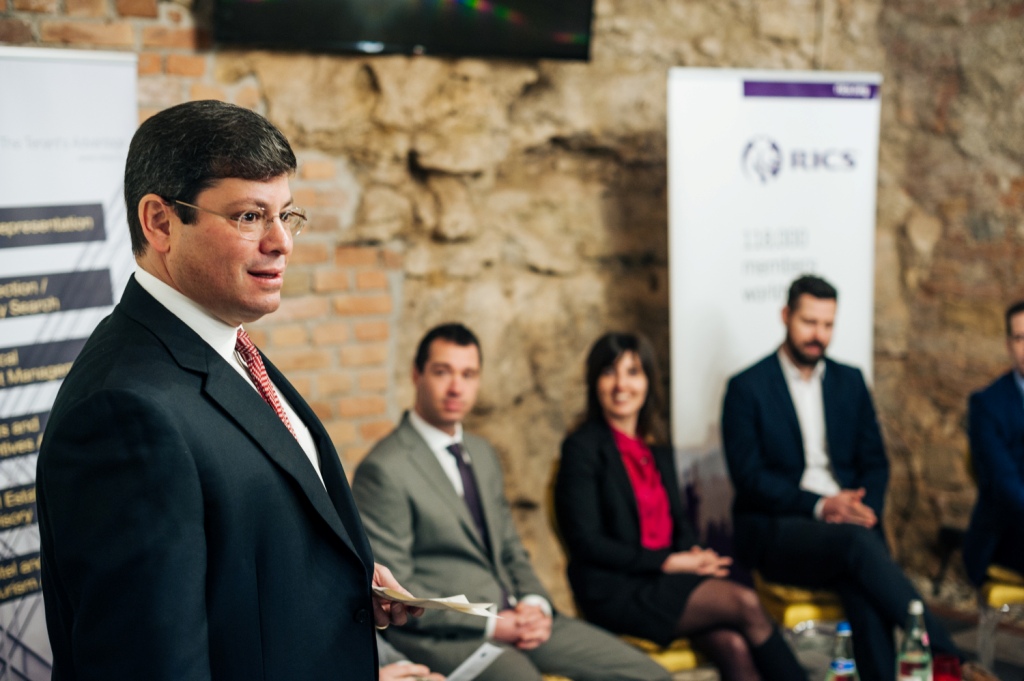
Search engines have become an integrated part of the daily life of people and companies as well. Not only the process of buying a book or planning a vacation has changed drastically over the last decade but companies looking for office space are also turning to the Internet more often. The latest Tea & Talk session, co-organised by RICS Hungary and VLK Cresa in Budapest, helped us understand how changes in technology will affect brokers, tenants and landlords.
The first Tea & Talk session of the year was opened by Noah M. Steinberg FRICS, Chairman of RICS in Hungary and CEO-Chairman of Wing and in his speech he emphasised the role of knowledge in our rapidly changing and increasingly online world. RICS has identified embracing technology and data as one of the key actions that must be taken by professionals all over in its Futures report titled Our changing world: let’s be ready. RICS considers it its duty to develop strategic alliances with companies and organisations at the forefront of technological innovation and to advise professionals on how to integrate into and benefit from these new ways of working.
According to a study, published by one of the Big Fours, sharing economy will have a massive impact on the commercial property market. Unless they transform themselves into tech companies, real estate advisory firms have no future in the long term and real estate brokering will cease to exist as a profession, the study predicts as demonstrated by the moderator of the discussion, Péter Takács, Partner at VLK Cresa.

Participants were first asked what role property finder websites play in office leasing today. Gergely Ditróy, Business Manager of Portfolio Ingatlan thinks that these websites can be really useful for companies looking to rent a couple hundred square metres of office space and when it comes to such small deals it is usually not worth it for advisory firms to get involved. Property finder websites, however, can also help narrow down the possibilities for companies looking for larger space and they are also an important marketing tool for landlords.
Immofinanz represented the landlord’s point of view at the discussion and Gergely Koó, Senior Leasing Manager & Marketing Coordinator revealed that over 95% of their tenants find them through advisory firms. Online platforms can help landlords to find tenants for smaller, leftover areas which are usually to hardest to fill, he added.

CBRE is already preparing for the effects of changes brought on by evolving technology by recently purchasing a company called Floored that has products that help potential tenants imagine how they new office can look like. One of their software allows users to visualize and edit floor plans in 2D and 3D and to create customized space layouts in real-time, while another enables a high-quality, interactive, next-generation customized 3D walk-through experience for new, unbuilt and repositioned spaces.

The changing use of office space also came up as a topic during the session. It is not only coworking stations and serviced offices that make up an increasingly larger share of the total stock; the share of sublet office space is also on the rise. The Big Four study, mentioned at the beginning of the discussion, predicts that 10 years from now a larger share of office space will be sublet than rented directly from the owner of the building.

Furthermore, as working from home and telework are becoming more and more popular among employees many companies find themselves needing less space. Office developers and advisory firms need to closely monitor this trend and come up with solutions for the changing needs of their clients, the experts concluded.



